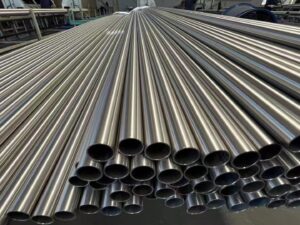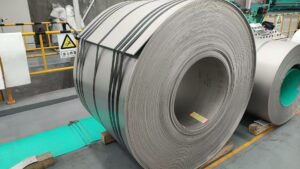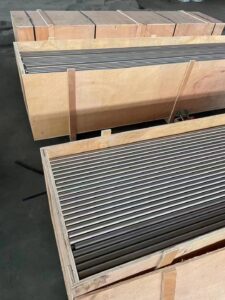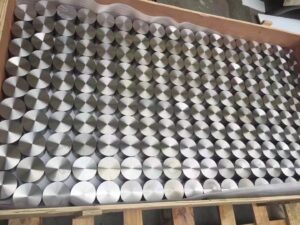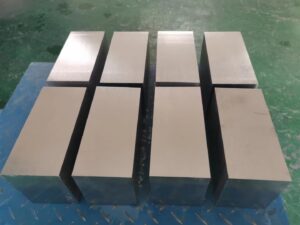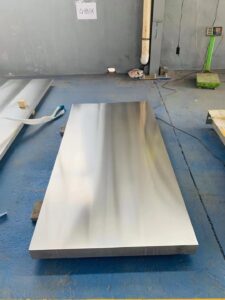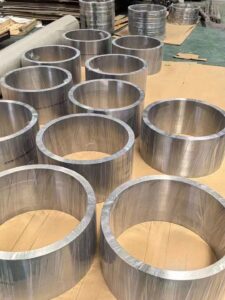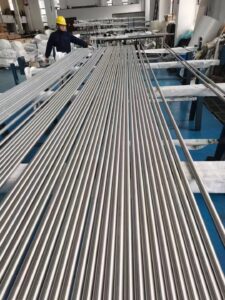With the rapid development of the aerospace industry, high-performance materials are more and more used in the aerospace industry and other aircraft parts, including titanium alloy, nickel-based alloy, and other high-temperature alloy with high strength and good performance of composite metal materials, is an excellent choice for aerospace metal materials.
Forging is a kind of high-end technology manufacturing, the excellent performance of forging is a combination of metal materials, processes, and equipment. Aerospace forging requirements are higher than ordinary industrial technology forgings, usually need to meet the AMS aerospace standards. For the equipment, both in terms of accuracy and performance, it is higher than the ordinary titanium alloy industry ASTM standards. Among them, temperature forging technology, integral forming technology, precision rolling technology is applied more. For aerospace titanium alloy forgings, large forging equipment is needed to achieve the internal structure of titanium alloy metal and the process of metal deformation.
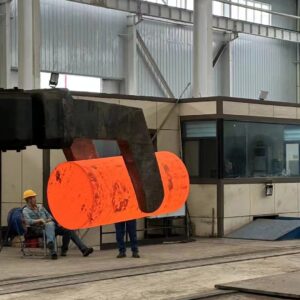
1. Forging process is an important factor to improve the performance of titanium alloys
Forging is a traditional metal working process, mainly the thermal deformation and heat treatment of titanium alloys. Through the pressure of forging equipment on titanium alloy, improve the plastic deformation of titanium alloy, with the maturity of the hot processing process, the general use of titanium alloy forgings, eliminate the shortcomings of the original titanium alloy cast loose, welded holes, so as to achieve finer titanium alloy grains, and molecular structure, so as to improve the performance of the metal.
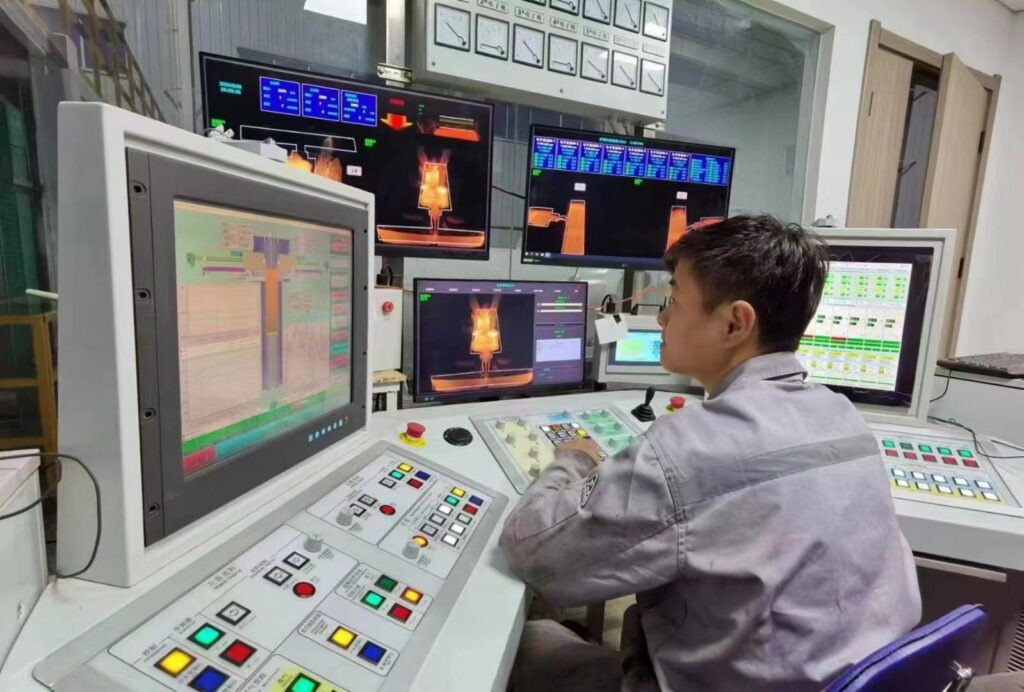
2. What are the forging processes of titanium alloy?
Free forging process: Free forging process is a large or heavy forging equipment for pier, pull, extrusion method, forging, can be forged according to size, performance, shape. In the free forging process, the degree of deformation is an important indicator, when the degree of deformation becomes larger, it can significantly change the microstructure and molecular gap of its titanium alloy, thereby improving the mechanical properties.
Hot die forging process: Hot die forging process is the use of external force to make the titanium embryo deformation in the mold. Titanium alloy hot die forging also includes isothermal forging, ordinary forging, superplastic forging process. The same is to make titanium alloy forgings have significantly refined microstructure and performance indicators.
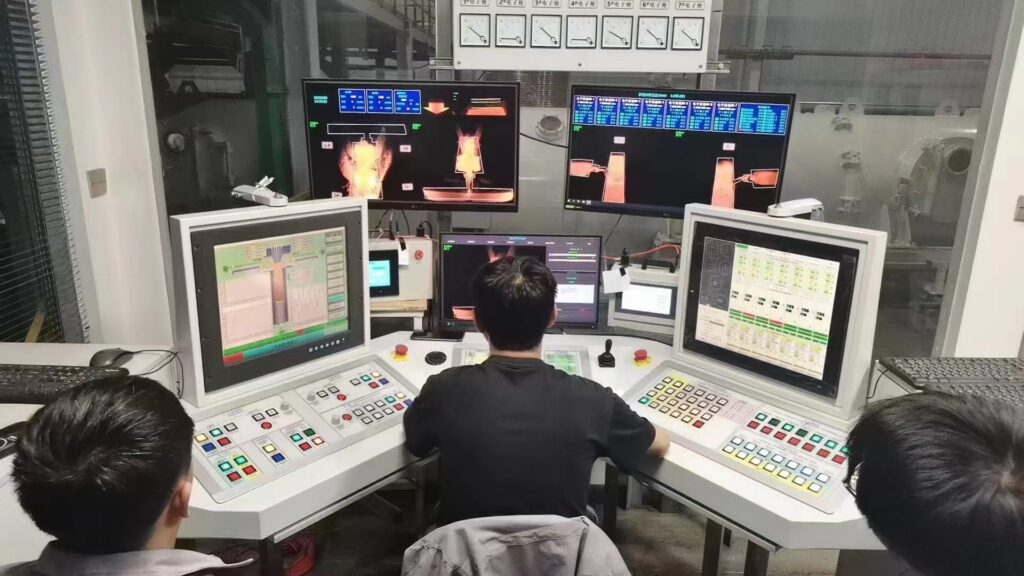
Special forging process: Special forging process is a mass production, the use of a single class of forgings such as block forging machine, there are certain limitations.
3. Forging deformation temperature of titanium alloy
High performance titanium alloy forging parts can not be separated from three important forging indicators: deformation temperature, deformation degree and deformation speed. The higher the initial forging temperature of titanium alloy, the better, for example, titanium alloy GR5 (Ti6Al4V), the stress of hot die forging is 1200MPa, and the forging deformation temperature is 980 degrees Celsius, but if the initial forging temperature exceeds the β phase transition temperature of titanium alloy, it is easy to form Wei’s structure, which will cause the room temperature plasticity of titanium alloy forgings to be low and titanium alloy β brittleness.
4. Titanium alloy forging deformation degree
According to the different performance requirements of titanium alloys, the forging deformation of titanium alloys also has certain differences. When the deformation degree is between 75-80%, the grain will become fine. Less than 10% of the grain will be coarse, higher than 85%, the grain will occur recrystallization. The deformation temperature should be 800-1000 degrees Celsius.
5. Deformation speed of titanium alloy
Because titanium alloy in the deformation process, the grain will occur recrystallization, so in the forging process, can improve the degree of deformation, reduce the deformation speed, in the forging press process, can reduce the deformation resistance of titanium alloy.
6. Engine forging technology
The disk used on the aerospace engine uses Ti-6Al-2Sn-4Zr-6Mo(Ti6246), using the β forging method, heating forging above the β phase transition temperature will produce recrystallization, so the forging temperature and processing deformation have a great impact on the material characteristics, and do not allow the forging to be reheated and stop deformation. Therefore, the forging temperature and deformation must be strictly controlled in β forging. Turbine blades are very thin, cooling quickly, so in the production process, there are also certain requirements for speed.
Titanium alloy forged ring, in the forging of a certain thickness of the ring processing, in order to avoid cracks, pressure and temperature drop is very important, to be processed at the appropriate temperature.
Titanium alloy forgings are widely used in aviation, aerospace, ships, ocean engineering, weapons, energy, automotive, metallurgy and petrochemical fields, and are key parts involved in operation safety. For example, the turbine disc and blade of the aircraft engine, the landing gear and wing SPAR of the aircraft, the crankshaft and front beam of the automobile, the rotor, impeller and large shaft of the generator set

